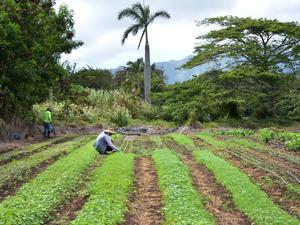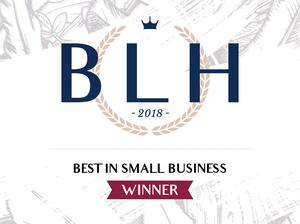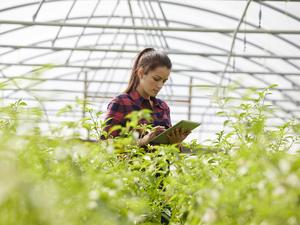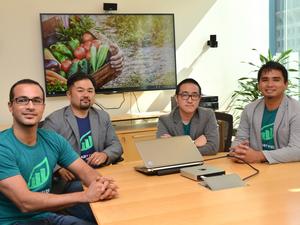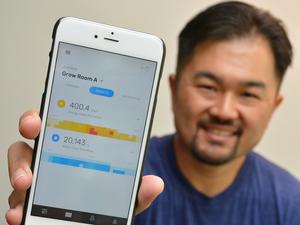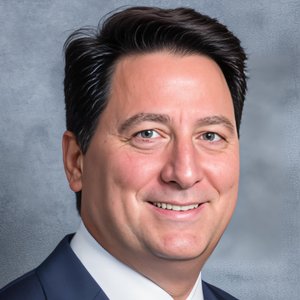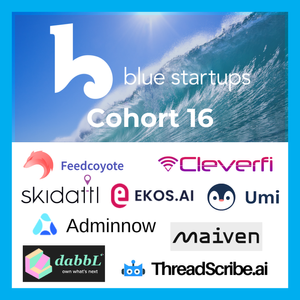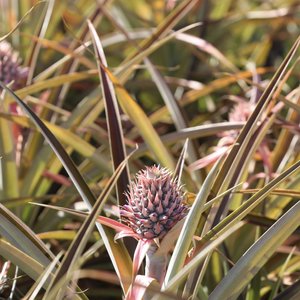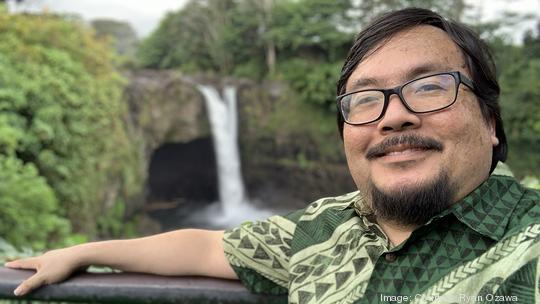
Honolulu-based agricultural technology firm Smart Yields has named Ryan Ozawa as its new chief executive officer.
Ozawa takes on the new leadership role after more than six years as the company's co-founder and chief marketing officer. He replaces former CEO and lead founder Vincent Kimura, who is now the director of programs and partnerships at the University of Hawaii Office of Innovation and Commercialization.
Kimura will stay on at Smart Yields — which combines real-time monitoring, data analytics, and digital agronomy for agricultural use into a mobile app designed for use in the field — as the company's president and chairman.
"Since our startup was founded in 2015 it was really been driven by a deep vision Kimura had for agriculture and sustainability and economic diversification in Hawaii," Ozawa said in an interview with Pacific Business News. "It is largely through his passion and persistence, as well as his network, that we have the relationships that we do including those with local accelerators like Blue Startups and Elemental Excelerator.
Ozawa, who became CEO on Jan. 1, is also a community engagement consultant for Hawaii Technology Development Corporation, and director of communications of Hawaii Information Service.
"I wear more hats than the average person," Ozawa quipped.
In his new role, Ozawa says his priority will be to support and sustain Smart Yields' current projects, while continuing to propose and secure funding for other projects.
Smart Yields' main project at the moment is called "Best Beans," an app the company is developing in partnership with the United States Department of Agriculture to help coffee farmers on Hawaii Island and elsewhere track, report and find testing help with coffee berry borers — a small beetle that is harmful to coffee crops.
"I’m just excited about the overall innovation ecosystem in Hawaii," he said. "It seems that every year there are more investors, programs, grant opportunities and nonprofits that are looking to foster innovation in Hawaii. Fifteen years ago I would not have said that there was much of a tech industry in Hawaii except maybe Telecom, and now we have tech startups in almost every industry in Hawaii, and that’s so exciting."
What drew you to the CEO position?
The original genesis of Smart Yields was [Kimura] and I sitting in a coffee shop in Manoa. So both in terms of longevity and in terms of that original vision, he felt it would be a natural transition.
Smart Yields is also near and dear to my heart and it's the expression of my entrepreneurial ambitions.
Has the pandemic had any effect on how Smart Yields operates or connects with farmers?
I think the overall shift to remote operations has made everyone, and certainly farmers, more comfortable with remote solutions. Farmers are becoming more welcoming of tech as it becomes more mainstream.
What's your management style?
I think getting out of the way is one philosophy. I’ve learned from my other bosses that in many cases the important role of a CEO is to keep the runway clear, and to point in the right direction.
The people you work with to build things, know how best to build things. I'm not a scientist or an agricultural researcher, but I try to keep my eye on the big picture, get advice from my mentors and clear the path forward.
What are some of the current challenges Smart Yields is seeing?
I think we share the same challenges as agriculture in Hawaii in general.
I think there’s a broad agreement that we need more sustainable local agriculture, and we need greater food independence.
But for that to translate into independent farms that are thriving and contributing to our communities, that’s hard. Farmers face regulatory challenges as well as everyday business challenges.
How do you measure success?
I would say that the number of successful and sustainable local farms is one metric. Hawaii is lucky to have a lot of industrial scale farming, commercial faming and even experimental farming. But I think that the need is clear for a whole ecosystem of different farms, and that’s what we want to help create.
